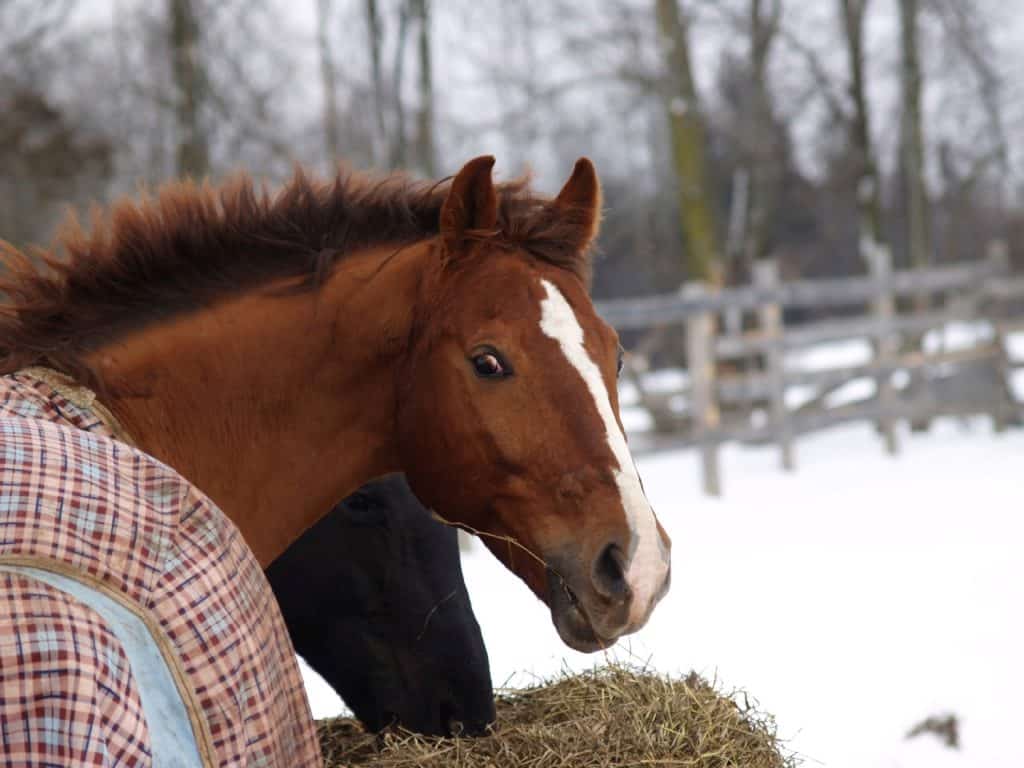
Maintaining Your Horse’s Body Condition During Winter
Learn how to use high-quality forage, water, and fat to help your horse maintain a healthy body condition score in colder weather.
Proper feeding practices for foals, adult horses, and older horses

Learn how to use high-quality forage, water, and fat to help your horse maintain a healthy body condition score in colder weather.

A nutritionist describes how you can protect your horse from this highly toxic antibiotic typically found in cattle feed.

Most stallions should be fed according to their maintenance requirements, depending on if and how much they’re exercising, when not being bred or collected.

Learn how to interpret feed tags and consider your horse’s specific dietary requirements so you can make informed decisions to maintain his health and performance.

Internal parasites can damage horses’ digestive tracts, causing lifelong issues with nutrient absorption.

Get advice on encouraging a hard-keeper to eat more. The first step? Rule out health problems.

Follow these 5 tips for feeding horses with recurrent colic while awaiting a diagnosis or targeted treatment.

Horses can consume hay pellets or cubes rapidly. How can we slow them down to increase their time spent chewing?

Find out how you can keep your metabolically efficient horse healthy when he’s laid up with an injury or chronic illness.

A veterinarian answers a reader’s question on why some horses have runny manure certain times of the year.

Two experts answer your questions about equine parasite control, deworming strategies, managing parasite resistance, and more.

Is one grass hay variety more palatable than another? Should I feed my horse the first or second cutting of hay? Equine nutritionists answer these questions and more.

Learn about some of the common plants toxic to horses and their effects in this article from The Horse‘s Fall 2024 issue.

Find out how proper nutrition, including high-quality protein, could help improve muscling over your horse’s back.

Choose safer times and grasses for your horses for turnout while safeguarding their feet from laminitis. Learn more in this article from The Horse‘s Summer 2024 issue.

As you consider ways you can help your foal—and his dam—through the weaning process, examine methods based on research.
Stay on top of the most recent Horse Health news with
"*" indicates required fields